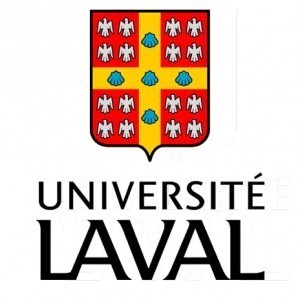Photos of university / #ulaval
The Geomatic Sciences program at Laval University offers students a comprehensive education in the field of geospatial data acquisition, management, analysis, and visualization. This multidisciplinary discipline combines principles of surveying, cartography, remote sensing, Geographic Information Systems (GIS), and spatial analysis to address complex geographic challenges. The program aims to equip students with both theoretical knowledge and practical skills necessary for careers in urban planning, environmental management, transportation, resource management, and geographic data analysis. Throughout their studies, students will learn to utilize cutting-edge technologies such as GNSS (Global Navigation Satellite Systems), drones, terrestrial and aerial photogrammetry, laser scanning, and GIS software to collect and analyze spatial data with precision. The curriculum emphasizes both fieldwork and laboratory exercises, fostering hands-on experience in data collection, processing, and interpretation. Students will also gain expertise in spatial data modeling, database management, remote sensing image processing, and the development of cartographic products. The program prepares graduates to contribute effectively to spatial planning, environmental monitoring, infrastructure development, and disaster management projects. With an emphasis on sustainable development and technological innovation, the Geomatic Sciences program at Laval University ensures that students are well-prepared to meet the demands of a rapidly evolving geospatial industry. Graduates will be capable of working in diverse sectors such as government agencies, consulting firms, research institutions, and private enterprises, providing essential spatial analysis and mapping services. The program also encourages research and innovation, enabling students to participate in projects that advance the fields of geospatial sciences and contribute to societal development. Overall, Laval University's Geomatic Sciences program combines rigorous academic training with practical experience, preparing students to become skilled professionals in a dynamic and vital sector of the modern economy.
The Geomatic Sciences program at Laval University offers a comprehensive and multidisciplinary education focused on the measurement, analysis, management, and visualization of spatial data. Designed to prepare students for careers in surveying, cartography, remote sensing, geographic information systems (GIS), and urban planning, the program emphasizes both theoretical foundations and practical skills. Students are introduced to core concepts such as geodesy, photogrammetry, spatial data acquisition, and data processing techniques. The curriculum covers modern technologies and tools used in the field, including GPS, LiDAR, satellite imagery, and GIS software, ensuring graduates are well-equipped to handle the demands of the evolving geospatial industry. Throughout the program, students engage in hands-on projects, fieldwork, and internships that provide real-world experience. The program also encourages development of critical skills in data analysis, spatial modeling, and visual communication of geographic information. Graduates of the Geomatic Sciences program are prepared for employment in various sectors such as environmental management, urban development, transportation, and resource management. The program aims to foster innovation, technical proficiency, and environmental consciousness, enabling students to contribute effectively to sustainable development and spatial decision-making processes. Collaboration with industry professionals, research institutions, and government agencies enriches the educational experience, positioning graduates to excel in a competitive job market.
Program Requirements for the Bachelor's Degree in Geomatic Sciences at Laval University:
The Bachelor of Science in Geomatic Sciences at Laval University is designed to prepare students with a comprehensive understanding of spatial data acquisition, processing, analysis, and application. To successfully complete this program, students must fulfill a series of academic and practical requirements. The program typically begins with foundational courses in mathematics, physics, and computer science to build the necessary theoretical background. These include courses in calculus, linear algebra, physics, and introductory programming, which are essential for understanding geospatial technologies and data analysis.
Subsequently, students proceed to specialized coursework in geomatics, covering topics such as Geographic Information Systems (GIS), remote sensing, cartography, surveying, and spatial data management. Practical skills are emphasized through laboratory sessions, internships, and project work, allowing students to gain hands-on experience with industry-standard tools and GIS software. The curriculum often includes courses on geodesy, photogrammetry, and spatial analysis, providing a well-rounded knowledge base in geomatic sciences.
In addition to coursework, students are required to complete a certain number of credits through elective courses, which enable them to explore areas of interest within or outside the main discipline, such as environmental management or urban planning. A capstone project or thesis is usually part of the program, requiring students to apply their accumulated knowledge to real-world problems, demonstrating research, analytical, and technical skills.
To graduate, students must achieve a minimum grade point average as specified by the university, successfully pass all required courses, and complete the internship or practical training component. Professional development activities and participation in seminars or workshops may also be encouraged to enhance learning and network building. Overall, the program aims to equip graduates with both theoretical expertise and practical competencies, preparing them for careers in surveying, GIS analysis, remote sensing, urban planning, and environmental management.
Note: The above description is based on typical program structures and similar offerings at Laval University due to limited specific information available.
The financing of the Geomatic Sciences program at Laval University is primarily supported through a combination of government funding, university resources, student fees, and external research grants. As a publicly funded institution in Quebec, Laval University benefits from provincial and federal government contributions aimed at promoting higher education and research activities. These funds are allocated to support not only general university operations but also specific faculties and programs, including Geomatic Sciences.
Student tuition fees constitute a significant portion of the program’s funding structure. Fees vary depending on the student’s residency status, with Quebec residents often paying lower rates compared to out-of-province and international students. The fees cover instructional costs, access to facilities, and other academic resources. Additionally, the university offers scholarships, bursaries, and financial aid programs to assist students financially, which can be pivotal in enabling students to pursue their studies without undue economic burden.
External research grants play a crucial role in financing innovative projects within the Geomatic Sciences program. These grants are often awarded by federal agencies such as the Natural Sciences and Engineering Research Council (NSERC), provincial organizations, and private sector partners interested in geomatics, geospatial technologies, and related fields. Such funding supports faculty research, laboratory equipment upgrades, and student research assistantships, thereby enriching the academic environment and providing students with practical research experience.
Laval University also promotes partnerships with industry stakeholders and government agencies, which can include joint funding initiatives, internships, and cooperative training programs. These collaborations not only enhance the practical relevance of the program but also contribute financial resources to support its development.
In summary, the financing of the Geomatic Sciences program relies on a diversified structure encompassing governmental support, student tuition, scholarships, external research funding, and industrial partnerships. This multifaceted approach ensures the sustainability, quality, and continual improvement of the program, offering students a comprehensive education in geomatics while maintaining financial stability for the university.
The Geomatic Sciences program at Laval University offers students a comprehensive education in the field of geospatial information and remote sensing. This program prepares students to analyze, interpret, and manage spatial data using advanced technological tools and methods. The curriculum covers a wide array of subjects, including geographic information systems (GIS), photogrammetry, remote sensing, cartography, spatial analysis, and data acquisition techniques. Students gain hands-on experience through laboratory exercises, project work, and field activities that equip them with practical skills necessary for careers in mapping, surveying, environmental monitoring, urban planning, and civil engineering. The program emphasizes the interdisciplinary nature of geomatic sciences, integrating aspects of geography, geology, computer science, and engineering to address real-world problems related to land use, resource management, and spatial infrastructure development. Laval University’s facilities are equipped with modern labs and software tools for spatial data processing and analysis, providing students with an immersive learning environment. Graduates of this program are well-positioned to enter professional roles in government agencies, consulting firms, or research institutions, where they support sustainable development and technological innovation through precise spatial data management. The program also fosters research opportunities, allowing students to participate in projects that advance the field of geomatic sciences, including innovations in GIS technology and remote sensing applications. Overall, the program aims to cultivate skilled professionals capable of utilizing cutting-edge geospatial technologies to solve complex spatial problems, contribute to urban and environmental planning, and promote sustainable development initiatives.

